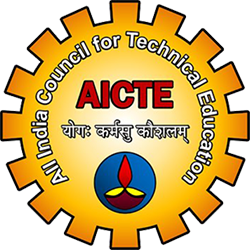
In the ever-changing business environment, digital transformation has become one of the most critical factors. Organisations today are reinventing their plans, implementing new tools and leveraging big data analysis to survive in the marketplace. This has also impacted business education since premier universities fold digital transformation skills into conventional management courses. A PGDM specialising in Digital Transformation and Business Management prepares future leaders to navigate the digital age with agility and innovation.
The Growing Demand for Digital Transformation in Business
Digital transformation changes operations and customer value delivery by integrating digital technologies in all company domains. Customer service, marketing, channel management, operations and a lot many fields today have been transformed through the use of AI, Big Data, Cloud Computing and IoT. These have transformed the manner in which business decisions are taken. More and more firms worldwide are undertaking digital transformation, creating demand for competent leaders. Companies require leaders with management skills and technical expertise to reshape digital ecosystems. Learners need managerial and digital abilities; therefore, a PGDM in this particular course becomes very valuable in today’s context.
Key Components of PGDM in Digital Transformation and Business Management
A PGDM program with a focus on Digital Transformation and Business Management combines foundational management education with specialised digital skills. Here are the core components of this innovative curriculum:
1. Core Business Fundamentals
Business education is of paramount relevance and important business related subjects including finance, marketing, operations and human resources are taught to learners comprehensively. This foundation lends the professional base needed to run business from a strategic level. The programs foster leadership capability in graduates for several sectors.
2. Digital Strategy and Transformation
Digital strategy simply refers to the overall plan for undertaking business activities in the contemporary digital economy. This one aims at providing an understanding of how digital technologies can enhance business processes, customer experiences and business models as well as offering essentials for data-driven decision making. Case studies give learners an opportunity to observe possible practical implementation of digitalisation.
3. Data Analytics and Artificial Intelligence
Data analysis is at the core of most digital initiatives and data proficiency is crucial for the current and future leaders. Data analysis courses ensure that learners are able to analyse, present and model data, understand predictive analytics and learn about the applications of machine learning. Besides, learners are informed about the ethical aspect and issues of implementing AI in the business.
4. Change Management and Innovation
In many cases, digital transformation usually means radical changes within an organisation. This component involves mentoring where learners are trained on how to manage changes in organisation. Learners also get to know about the various innovation processes in order to address issues of change management and creativity.
5. Digital Marketing and Customer Experience
Digital marketing is an indispensable part of many modern-day business plans. Learners investigate customer-acquisition and engagement through digital channels, addressing issues including social media strategy, content marketing and customer experience management. With this knowledge, graduates will be ready to develop targeted online marketing initiatives and optimise customer journeys.
Career Prospects for Graduates
This course grooms candidates for high in-demand jobs across industries, through the competencies they acquire during the program. Businesses now prioritise digital innovative strategies so much that graduates can step into roles like:
Digital Transformation Manager: Leading initiatives to integrate digital solutions organisation-wide.
Business Analyst: Using data insights to guide business decisions and optimise operations.
Innovation Consultant: Advising companies on adopting cutting-edge technology and innovative practices.
Customer Experience Manager: Overseeing digital strategies to enhance customer satisfaction and loyalty.
Product Manager: Managing the lifecycle of digital products, from development to launch and optimisation.
Why This Program is Essential for Future Leaders
In this cycle of transformation for every business, there will always be an increased need for managers trained in digital transformation. A PGDM with a specialisation in Digital Transformation and Business Management provides learners with a dual advantage - a basic business administration knowledge and skills in relation of handling change and information technology and through hands-on projects, case studies and exposure to emerging technologies, learners gain practical insights that they can immediately apply in their workplace.
This dynamic program is more than just a qualification; it is a preparation for the future. Institutions like Sparsh Global Business School lead by offering specialised programs that equip learners to thrive in a digital-first world. By combining traditional management principles with digital expertise,SGBS empowers graduates to become the transformative leaders of tomorrow.
FAQ’s
1. Why is digital transformation key in business education today?
With digital tools reshaping business, a PGDM in Digital Transformation and Business Management prepares leaders to adapt quickly to changes in the business environment and make data-driven decisions.



